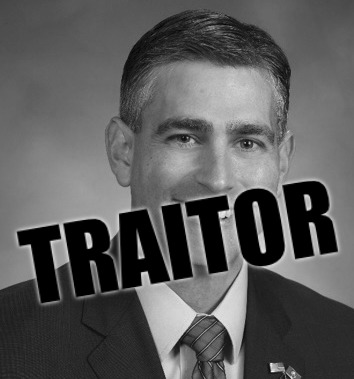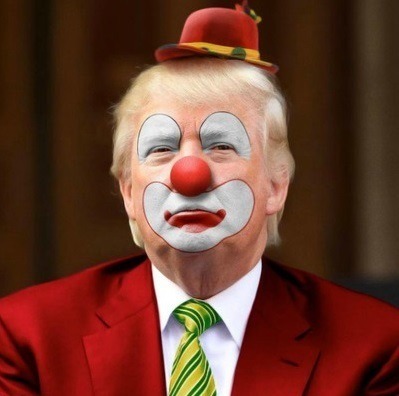Congress has the constitutional authority over tariffs and trade policy, but over the years, it has ceded much of that power to the executive branch. Laws like the Trade Expansion Act of 1962 and the Trade Act of 1974 have given presidents broad discretion to impose tariffs under the guise of national security or responding to unfair trade practices. Donald Trump exploited these loopholes during his first term, and now, in his second, he’s doing it again—causing market turmoil and economic uncertainty. If Congress wanted to reclaim its authority and put an end to Trump’s reckless tariffs, it could. But don’t expect Washington’s 5th District Representative, Michael Baumgartner, to lift a finger.
Baumgartner is in a position to act. As a sitting member of Congress, he has the ability to introduce or co-sponsor legislation that would reassert congressional control over trade policy. A straightforward bill could require all new tariffs to receive congressional approval, effectively stripping the president of unilateral power in this area. The economic case for such a move is clear: tariffs disrupt supply chains, drive up costs for consumers and businesses, and invite retaliatory measures from trading partners. Yet despite these glaring issues, Baumgartner won’t act.
The reason is simple—he supports Trump’s tariffs. Like many in the Republican Party, Baumgartner has embraced a brand of economic nationalism that prioritizes political talking points over sound policy. While free-market rhetoric was once a cornerstone of conservative ideology, the party has now shifted toward protectionism when it suits their political interests. Baumgartner falls squarely into this camp. He won’t fight Trump’s tariffs because he doesn’t want to challenge the party line, even if it means economic harm for his district.
Farmers, manufacturers, and small businesses in Washington’s 5th District will be among those feeling the impact of these tariffs the hardest. Agriculture is particularly vulnerable to retaliatory measures from foreign governments. We’ve seen this before—Trump’s trade war with China led to painful tariffs on American agricultural products, forcing the government to step in with massive subsidies to keep farmers afloat. Instead of preventing these self-inflicted wounds, Baumgartner and others like him seem content to let history repeat itself.
His priorities are clear. Instead of looking out for the interests of his constituents, Baumgartner has aligned himself with policies that benefit the wealthiest Americans—most of whom don’t live anywhere near Eastern Washington. He backs Trump’s tax cuts, which overwhelmingly benefited the richest individuals and large corporations while offering little to middle-class workers. Now, as tariffs threaten to raise prices on everyday goods, his refusal to act only reinforces the fact that his economic agenda isn’t about helping working people—it’s about protecting the interests of the donor class.
If Baumgartner truly cared about economic prosperity in Washington’s 5th District, he would recognize that fair, free trade and open markets are critical to local industries. Instead, he is standing by as Trump upends global supply chains and sparks economic recession. The contradiction couldn’t be clearer: Republicans like Baumgartner claim to support economic growth, yet they embrace policies that actively undermine it. The farmers and businesses struggling under these tariffs deserve better.
Congress has an obligation to take back the authority it recklessly handed to the executive branch. Trade policy should not be subject to the whims of one man—especially one as erratic and dangerous as Trump. There is already bipartisan support for limiting presidential tariff powers, but without leadership from people like Baumgartner, any effort to rein in Trump’s trade policies will stall. He has the power to take a stand but refuses to do so.
The consequences of inaction will be felt by ordinary Americans, not the wealthy donors who bankroll Republican campaigns. Prices will rise, exports will shrink, and jobs will be lost. Meanwhile, the billionaires who benefited from Trump’s tax cuts will continue to hoard their wealth, unaffected by the struggles of working- and middle-class families. Baumgartner may claim to represent the people of Washington’s 5th District, but his policies suggest otherwise.
At the end of the day, this is about more than just tariffs—it’s about who our representatives truly serve. Baumgartner had a choice: stand up for the economic well-being of his district or fall in line with Trump’s reckless agenda. He chose the latter. And unless voters hold him accountable, he’ll keep doing it.
Eastern Washington deserves a representative who will fight for its economic future, not someone who rubber-stamps policies that put it at risk. If Baumgartner won’t act, it’s up to the people of Washington’s 5th District to find someone who will.





